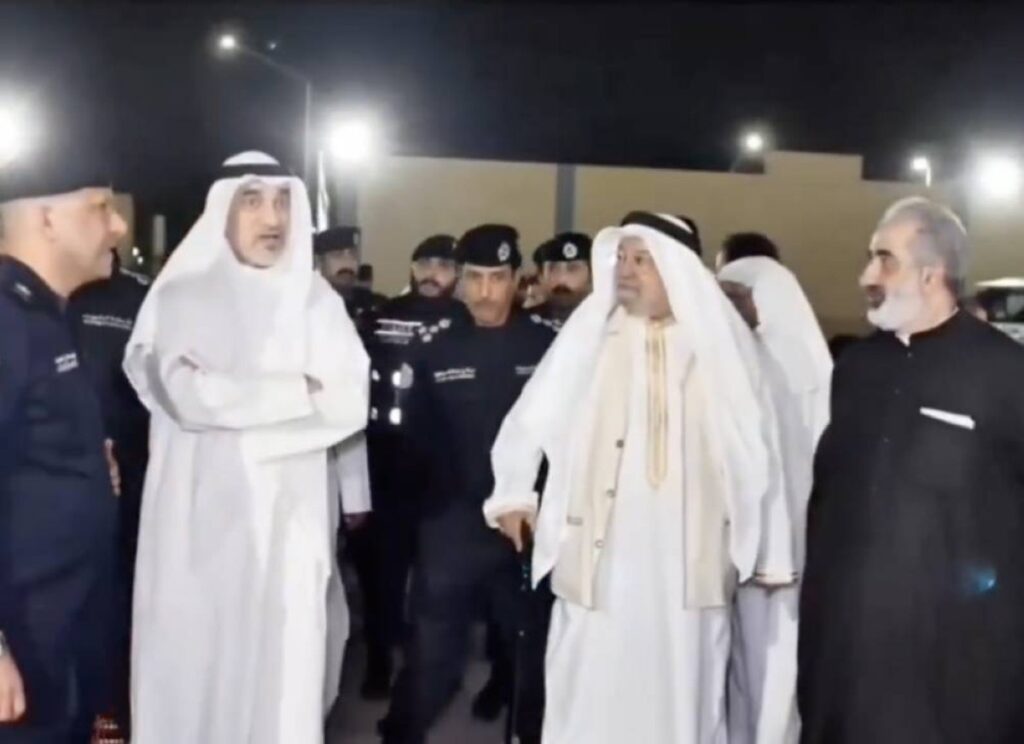Interior minister leads field inspections • New safety rules for Muharram gatherings
KUWAIT: With the onset of the month of Muharram, Kuwaiti authorities have launched an intensive security and organizational campaign to safeguard religious gatherings, with senior officials visiting husseiniyas to assess field readiness. Leading the effort, First Deputy Prime Minister and Interior Minister Sheikh Fahad Al-Yousef Al-Sabah conducted a high-profile field tour on Friday morning, inspecting several husseiniyas and majalis to evaluate the implementation of the country’s comprehensive Muharram security plan.
According to the interior ministry, Sheikh Fahad reviewed emergency protocols, traffic and crowd management strategies, and inter-agency coordination with the Kuwait Fire Force and emergency medical services. During his visit, he praised both security personnel and husseiniya officials for their close coordination, noting that the mutual commitment “helps ensure a safe, orderly, and respectful environment for commemorating Ashura.” Sheikh Fahad also visited National Guard units assigned to Muharram security, commending their role in the broader security framework. “The readiness of our teams across all sectors is critical to this national effort,” he said.

Meanwhile, Acting Interior Ministry Undersecretary Lt Gen Ali Al-Adwani conducted his own inspection of checkpoints and operational sites around husseiniyas. He stressed the importance of adhering to the approved security plan and praised the discipline shown by field officers. “Coordination between the
ministry of interior and National Guard is essential to ensuring swift and effective responses to any incident,” he said.
Sheikh Fahad’s tours followed a series of high-level meetings with husseiniya representatives. The first, held on June 19, resulted in a set of unprecedented regulations, including relocating Muharram gatherings from traditional husseiniyas to secure public schools. “The political leadership is keen on ensuring the performance of religious rituals while taking into account the regional circumstances and current security conditions,” Sheikh Fahad said during the meeting.
A follow-up session on June 24 led to additional rules issued by a committee of husseiniya representatives. These included limiting home-based majalis to a maximum of 50 attendees, banning gatherings outside the premises, and prohibiting the use of outdoor loudspeakers. Donations and traditional Ashura meals (tabkh al-baraka) remain permitted but must follow specific safety guidelines. Sermons must avoid political messaging, and religious gatherings in mosques are required to conclude by 9 pm.
The interior ministry has been granted sole authority over all organizational matters related to Muharram, centralizing oversight to ensure consistency and security. Officials emphasized that the arrangements aim to balance public safety with freedom of worship. In a statement following the June 19 meeting, husseiniya leaders expressed appreciation for Sheikh Fahad’s approach. “We thank the First Deputy Prime Minister and Minister of Interior for giving us the opportunity to meet amid these exceptional circumstances,” the statement read, reaffirming their support for efforts to protect both public safety and religious freedoms. – Agencies

